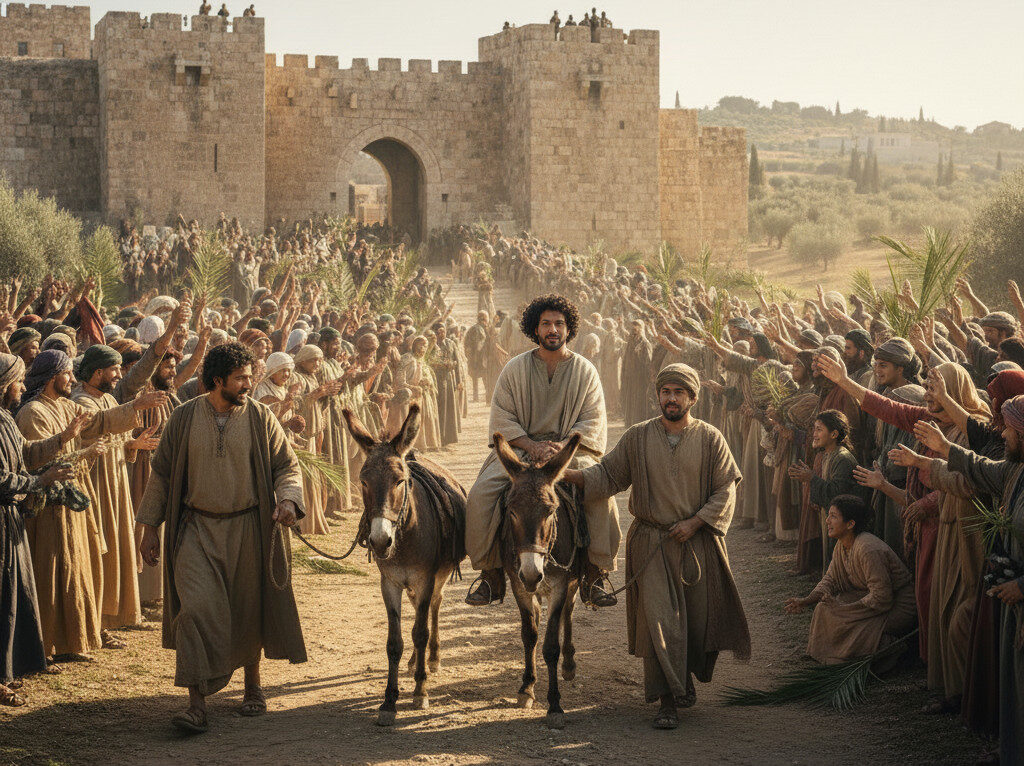Ezekiel 37:15-28 and Elements of God’s Future Promises to Israel
By Dr. Keith Kobelia / January 30, 2026
The Prophet Ezekiel was called to an unusual but important ministry to the captives of Judah in Babylon. Despite his unusual methods (e.g., symbolic acts) and extraordinary visions (e.g., Ezek...
Read More
Why the Promises to Israel Matter Today
By Dr. Daniel Brown / November 15, 2025
Fulfilled Messianic Prophecies from the Book of Zechariah
By Dr. Keith Kobelia / September 15, 2025
Among the most intriguing prophetic sections of the Bible are the prophecies of Zechariah which are contained in the book that bears his name. Zechariah is teeming with Messianic prophecies,...
Read More
The Virgin in Isaiah 7:14
By Dr. Timothy A. Little / July 1, 2025
INTRODUCTION According to the Gospel of Matthew, the virgin Mary was found to be with child of the Holy Spirit. Jesus the Messiah was miraculously conceived, and, several months later,...
Read More
1 Reply
{"slides_column":1,"slides_scroll":1,"dots":"true","arrows":"true","autoplay":"true","autoplay_interval":"5000","speed":"1200","lazyload":""}
Discipleship in the Wilderness
Posted on by Dr. Jeff Newman
Helping Our Fellow Believers Live Out the Pursuits of Psalm 63
In the July/August issue of The Baptist Bulletin, Dr. Jeff Newman, professor of Biblical Counseling at Faith Baptist Bible College and Theological Seminary, wrote an article titled “Dependence in the Wilderness.” In that article, available here, Dr. Newman explored Psalm 63 and its implications for growth during difficult circumstances. This Faith Pulpitarticle builds upon his previous work by applying the Biblical concepts to discipleship ministries. For a more thorough study of these concepts, you may purchase his most recent book, Dependence in the Wilderness (Regular Baptist Press, 2015).
Contextualization in Missions Today
Posted on by Dr. Mark Lounsbrough
The very mention of the word “contextualization” in evangelical circles has engendered a variety of reactions. For some, contextualization is absolutely indispensable in cross-cultural ministry. For others, it is a word fraught with compromise that diminishes the purity and clarity of the gospel message. What accounts for these two opposite reactions? In this edition of the Faith Pulpit, Professor Mark Lounsbrough, chair of the Missions and Evangelism Department at Faith Baptist Bible College, examines the issue and gives clarity in this important debate.
Further Thoughts on Eternal Security
Posted on by Dr. Alan D. Cole
It has been twenty-four years since the topic of eternal security was last addressed in the Faith Pulpit. In the February 1992 issue Dr. Myron Houghton presented the four major views on security and then explained how Romans 8:28–30 supports eternal security. In this issue Dr. Alan Cole, professor of Bible and theology at Faith Baptist Bible College, extends the discussion by presenting additional evidence to support the view that genuine believers cannot lose their salvation.
I appreciate the article Dr.
Improving Adult Sunday School Classes
Posted on by Mr. Don Anderson
My purpose in the first article was to call churches back to the priority of adult Sunday School classes because I believe they can do everything small groups can do and more and can provide the best format for discipleship. In short, adult Sunday School has the greater potential for benefit to a church. In this second article I offer some suggestions for how we adult teachers can improve our adult classes so they reach their full potential.
1. Commit to using printed curriculum that covers the Bible systematically.
The Synagogue and the Word
Posted on by Dr. Ernie Schmidt
A former graduate professor of mine made a passing statement once that grabbed my attention. He referred to two types of worship: the temple model and the synagogue model. The temple emphasized ritual and the synagogue emphasized the Word. In this companion article I want to focus on three physical aspects of the synagogue that relate to the Word of God— the ark, the platform, and Moses’ Seat.
The pictures below help illustrate these three physical features. The picture on the left shows two arks, or special containers for the scrolls of Scripture, at the Western Wall in Jerusalem today.
Making Church History Relevant for Pastors and Students
Posted on by Dr. Ken Rathbun
What is the value of church history to us today? Does it have any bearing on how we live and minister? In this issue of the Faith Pulpit, Dr. Ken Rathbun, graduate of Faith Baptist Bible College and Theological Seminary and visiting faculty member of FBTS, explores why church history is important for believers today, using a model he has developed. In his second article he applies that model to a contemporary area of church life.
Most of us took our church history classes1 in Bible college or seminary (or both) because we had to complete another requirement to graduate.
The Tour of a Lifetime
Posted on by Dr. Ernie Schmidt
The heart of an Israel tour is to observe the topography, geography, and culture which provide unparalleled insight into the Bible. When we are there, we do not use PowerPoint slides; we simply point and say, “That is where it took place.” Such “hands- and eyes-on” experience takes your knowledge of the Bible to a whole new level in just a few days. Every day seems like a Sunday worship service as we go from site to site and learn new truths about the Bible.
The Christian and Church History
Posted on by Dr. Ken Rathbun
All Scripture is given by inspiration of God, and is profitable for doctrine, for reproof, for correction, for instruction in righteousness, that the man of God may be complete, thoroughly equipped for every good work.
As I study church history, 2 Timothy 3:16 and 17 is a comforting passage. When one studies the discipline of church history, many unsettling episodes present themselves. We often wonder how people could make the decisions they did, and even more, how they justified those decisions with the authorities they used.
In Defense of the Adult Sunday School Class
Posted on by Mr. Don Anderson
Adult ministries are shifting in churches today. The emphasis seems to be moving away from adult Sunday School classes to small groups. In the first article Don Anderson, professor of Christian Education at Faith Baptist Bible College and Theological Seminary and a veteran adult Sunday School teacher, calls churches back to the priority of adult Sunday School classes. He believes adult Sunday School classes can do everything small groups can do and more. In the second article he offers some suggestions for how to improve our adult classes so they reach their full potential.
When Is It Time to Quit?
Posted on by Dr. Daniel Brown
Every once in a while I do something that feels akin to beating my head against a wall. This article feels like that because my intention is to discuss how long preachers should preach. I have discussed this topic with enough preachers to know that preachers will preach as long as they want to preach. Certainly every preacher needs to be “convinced in his own mind” of what length of sermon is appropriate. I acknowledge this is an area where good men can disagree.




